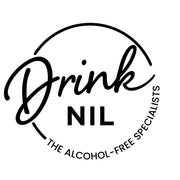Meet the young CA daring to disrupt SA’s non-alcoholic drinks market
Accountants are perceived to be safe and predictable; they don’t take unmeasured risks and don’t leap feet-first into new things. But throughout history, there have been accountants (including Nike founder Phil Knight) who’ve turned their backs on the certainty of a 9-5 job in finance for the adventure of entrepreneurship.
One South African who falls into that category is Ayanda Mvandaba. A qualified chartered accountant who could easily have risen through the corporate ranks, Mvandaba instead chose to forge her own path, growing and investing in several ventures. And with her latest acquisition – a non-alcoholic ecommerce retailer called Drink Nil – she’s hoping to give South Africans a new way of thinking about how they have fun.
It’s probably not a path that Mvandaba’s parents, seasoned legal professionals, would have envisioned or even thought possible for her when she was growing up. Born and educated in the small Eastern Cape Town of Queenstown (now officially known as Komani), Mvandaba had aspirations to be a Maths teacher. After speaking with her mother, she decided to study accountancy at Stellenbosch University.
“During a life-altering conversation with my mom, I realised that I could best achieve my goals of educating and empowering not by teaching Maths in a classroom but by lowering and potentially removing the barriers to success for young people through pursuing a career in accounting,” says Mvandaba.
CAs can shape the strategic direction of organisations and Mvandaba has always been conscious of that. “I understood that obtaining this qualification would enable me to help get young people into the rooms where decisions are made.” Mvandaba believes that she’s remained true to that mission in her entrepreneurial and community-based endeavours.
After university, Mvandaba completed her articles in KPMG’s financial services division and went on to work there as a manager. She then moved into asset management. Throughout this period, however, she felt a yearning for something different.
“I was having an existential crisis and I thought, nope. This life is not for me,” she says.
This realisation led her to found her own financial services firm, Kwandiso Consulting. The consultancy covers various offerings ranging from financial reporting to auditing, due–diligence, and corporate governance. Despite being less than four years old, the business has already seen significant levels of success.
“I've got a small team that I manage there,” she says. “But that's not my main day-to-day focus anymore because the team can handle it unless it's complex or there’s an emergency.”
Mvandaba’s experiences in both full-time employment and as an entrepreneur have also moulded a caring but pragmatic approach to her own experiences as an employer.
“I have been intentional about building workplaces that are supportive and conducive to helping people create magic,” she says. “It’s imperative that I am the manager, mentor, and leader to others that I wish I had.”
Mvandaba has several other business interests and a diversified portfolio
Beyond that, she also sits on several boards, has launched a bursary fund, and is the managing partner for a youth unemployment initiative.
As if to illustrate the relentlessness of the entrepreneurial spirit, Mvandaba’s next big adventure was birthed when she was pregnant and became frustrated at how few non-alcoholic drink options she could find. That led her down an internet rabbit hole, where she eventually found Drink Nil.
Started by Fiona Hilton and Caroline van Schalkwyk, the ecommerce store allows South Africans to buy a wide variety of non-alcoholic beverages, ranging from alcohol-free spirits and mocktails to wines, beers, and ciders.
For Mvandaba, the decision to purchase Drink Nil was an easy one, given the growth potential of the low and no-alcohol space. South Africa in particular is primed for significant growth in the sector. According to a 2021 study, South Africa was set to experience annual sales growth of 16% or more in the years leading up to 2024. That put it on a higher growth trajectory than many rich-world markets including Australia, Brazil, Canada, France, Germany, and Japan.
She was also more than happy to buy into an existing business rather than start her own, competing venture. It didn’t hurt that she bought so readily into the founders’ vision for the business either.
“I often joke about there not being a need for me to create anything. I sometimes go as far as saying I’m not a creator and that’s why I prefer buying into existing businesses and putting the Ayanda spin on it,” she says.
For someone who claims not to be a creator, Mvandaba has big, creative plans for Drink Nil. These plans include curated menus, one-off experiences, and pop-up stalls. All of this is guided by the overarching belief that non-alcoholic drinks are a fun, healthy alternative to alcoholic drinks rather than something exclusively for the sober or sober curious.
Standing in a long drinks queue is synonymous with concerts and festivals. “This may be that similarly, drinking an alcoholic beverage is synonymous with attaining a certain level of fun at social gatherings, says Mvandaba. “We're saying, that isn’t true.”
Mvandaba also hopes to take Drink Nil global, exposing international consumers to some of the innovative non-alcoholic options that have come out of South Africa in recent years. For a country with as long a history of alcohol production as South Africa, it would undoubtedly send a powerful message if it could also become a powerhouse in the global non-alcoholic drinks space. She doesn’t believe that has to come at the expense of the traditional alcohol industry either, with both able to coexist.
Given everything Mvandaba’s achieved to this point, you wouldn’t want to bet against Drink Nil achieving all those goals and more under her direction and guidance.

